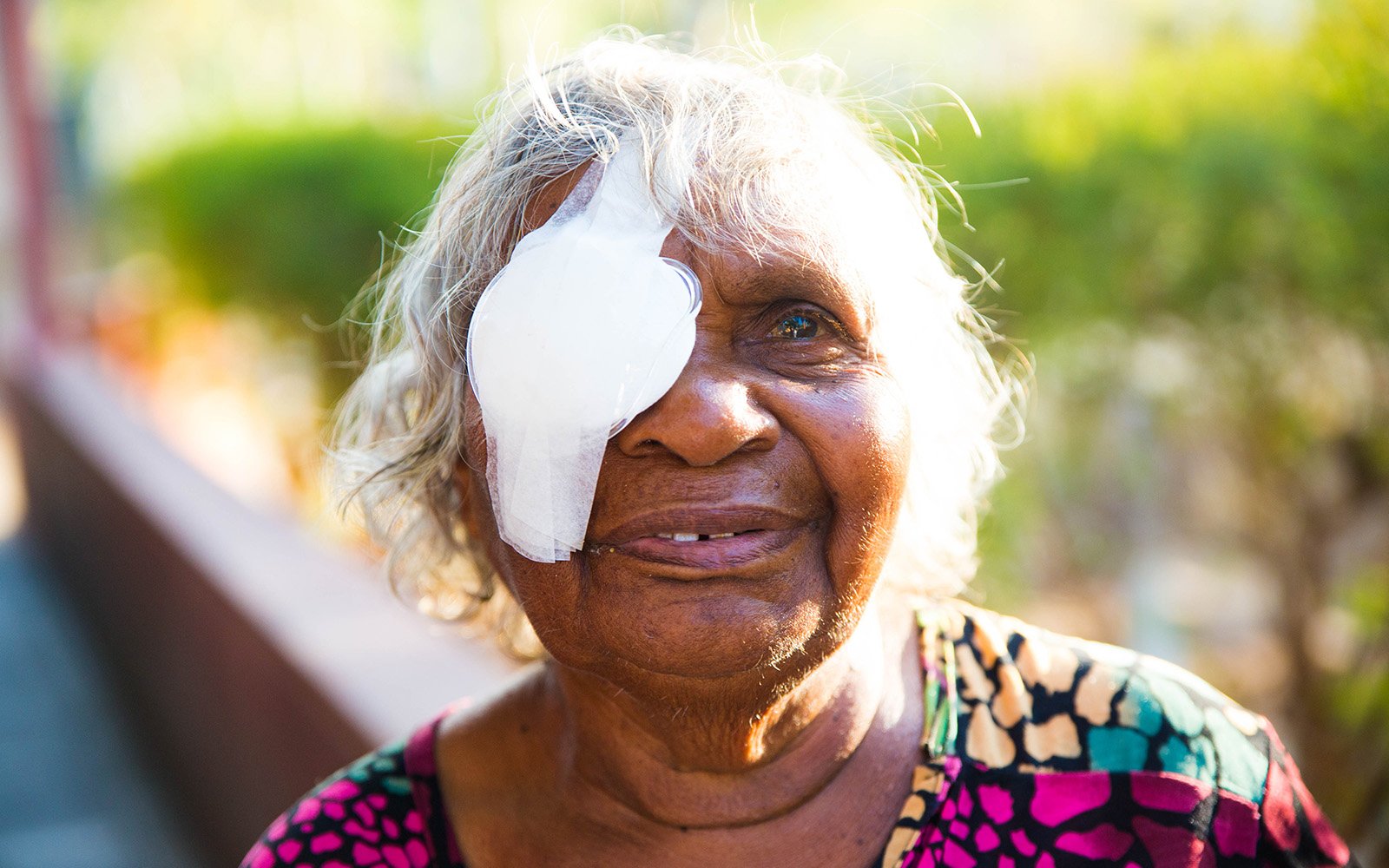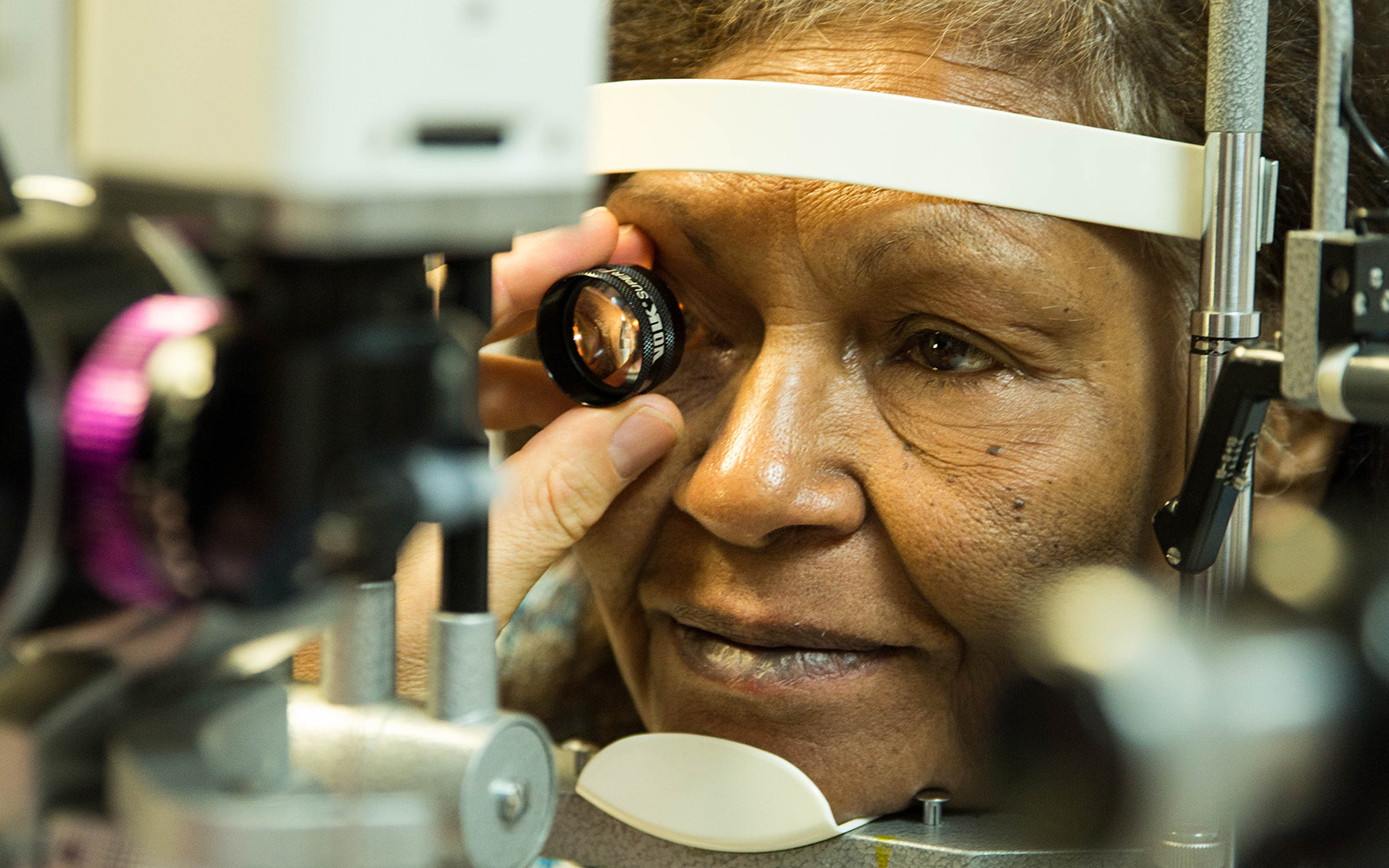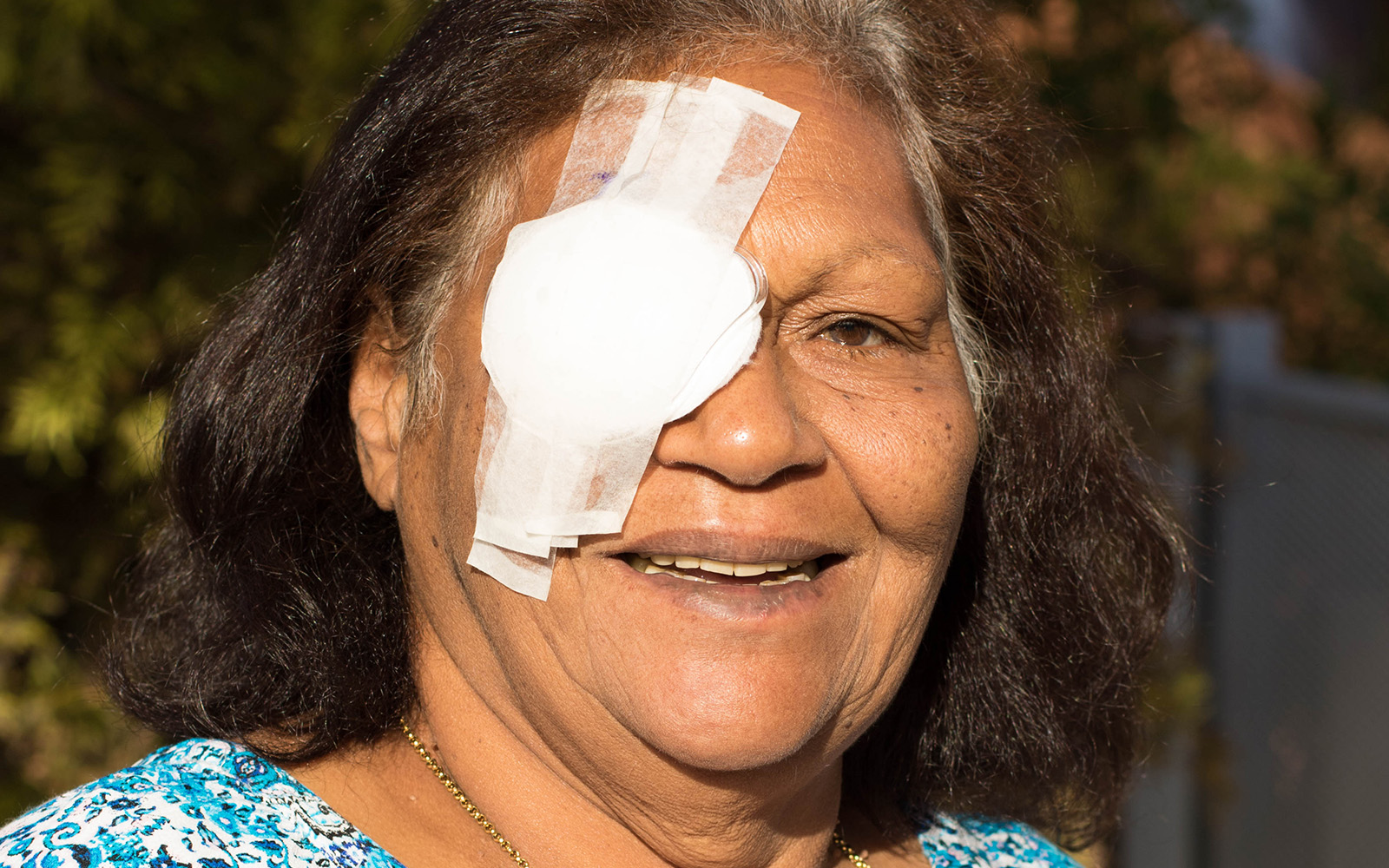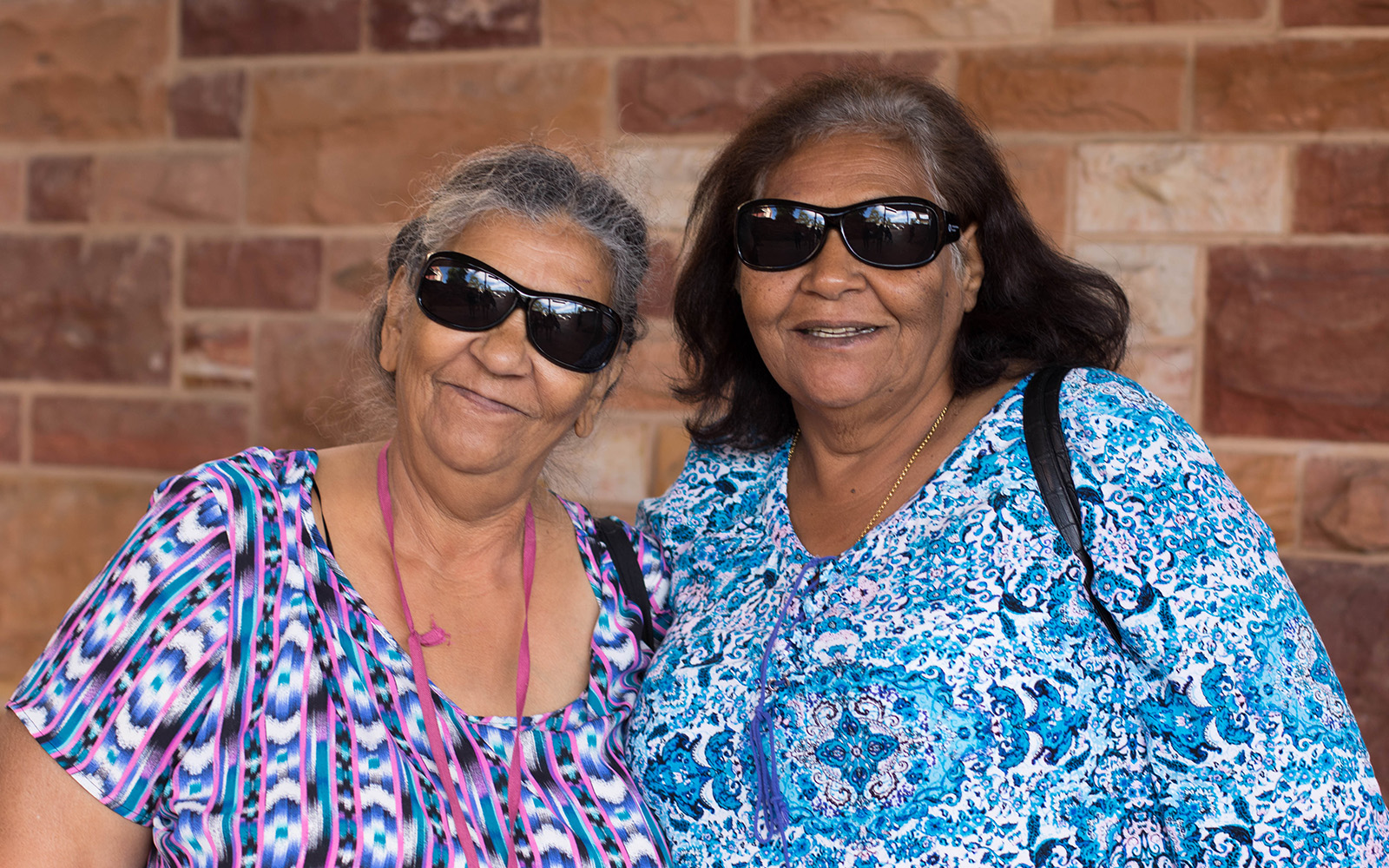Celebrating 10 years of integrated eye health in Central Australia
Over the past 10 years, The Fred Hollows Foundation and its partners have supported more than 700 patients like Maringka to receive surgery as part of the Central Australia and Barkly Integrated Eye Health Strategy (CABIEHS).
Maringka Burton was one of 30 patients who received sight-restoring cataract surgery during an Intensive Eye Surgery Week at Alice Springs Hospital. Maringka travelled over 400km from Indulkana, South Australia, to have her cataract removed.
You can hold on to my walking frame because I'm going to skip out of here! - Maringka, eye surgery recipient
10 years of CABIEHS

Over the past 10 years, The Fred Hollows Foundation and its partners have supported more than 700 patients like Maringka to receive surgery as part of the Central Australia and Barkly Integrated Eye Health Strategy (CABIEHS).
These surgeries have been conducted during 17 Eye Surgery Intensives led by Dr Tim Henderson, the only ophthalmologist in the Central Australia region. Dr Tim Henderson and his team service a population of more than 50,000 people, including 20,000 Aboriginal people, who are dispersed over an area larger than Spain (800,000 square kilometres). The next nearest services are in either Darwin or Adelaide.
The Fred Hollows Foundation has played a key role in coordinating the Eye Surgery Intensives by providing culturally safe patient support and funding for additional workforce during the weeks.
Eye health issues in Central Australia and Barkly

Eye health issues are significant for Aboriginal people in Central Australia and the Barkly, with indications that they have the poorest eye health status in Australia. When CABIEHS was established in 2007, there were more than 400 people waiting to have cataract surgery in the region. Over the past ten years, CABIEHS and its Intensive Eye Surgery Weeks continue to significantly reduce any such backlog through integrated and holistic eye health and vision service models.
The success of CABIEHS is in part due to its partnership approach that facilitates a shared responsibility for Aboriginal health and the delivery of services. CABIEHS brings together two Aboriginal Community Controlled Health Services (ACCHOs) in the region, the Northern Territory and Commonwealth governments, The Fred Hollows Foundation and other key non-government stakeholders to collaboratively address eye health challenges.
Empowering Aboriginal communities to engage with eye health

By focusing on empowering Aboriginal communities and people to actively own and engage with eye health care and prevention, CABIEHS has been able to address many of the barriers that Aboriginal people in the region face in accessing services.
One of these barriers is distance, with some patients travelling more than 800km from small remote communities for services. In addition, Aboriginal patients may have different perceptions and understanding of health and illness and may distrust health services due to previous negative experiences. Often communication barriers exist between Aboriginal Australians and health professionals and the dominance of a Western Biomedical approach using unfamiliar clinical terms only compounds feelings of fear or anxiety.
Aboriginal people also have competing priorities and obligations, including family, social and cultural obligations which may be prioritised over individual needs such as engaging with medical treatment.
How we've addressed eye health barriers

CABIEHS has successfully addressed many of these barriers by ensuring culturally appropriate patient support and good coordination through Aboriginal Liaison Officers and Regional Eye Health Coordinators. Engagements with communities and face to face visits from the eye teams have also been critical in building trust and mutual respect.
During the Eye Surgery Intensives, a focus has been placed on facilitating the participation of groups of patients from the same community for mutual support, and maintaining a highly flexible approach, scheduling and performing surgery whenever patients are available, to reduce the length of time a patient is away from their home.
After 10 years, CABIEHS is now focused on addressing the remaining gaps and securing sustainability for the future. The Fred Hollows Foundation will continue to work collaboratively towards ensuring that eye care is fully integrated across all levels and that Aboriginal patients receive the right care, at the right time, by the right team and in the right place.